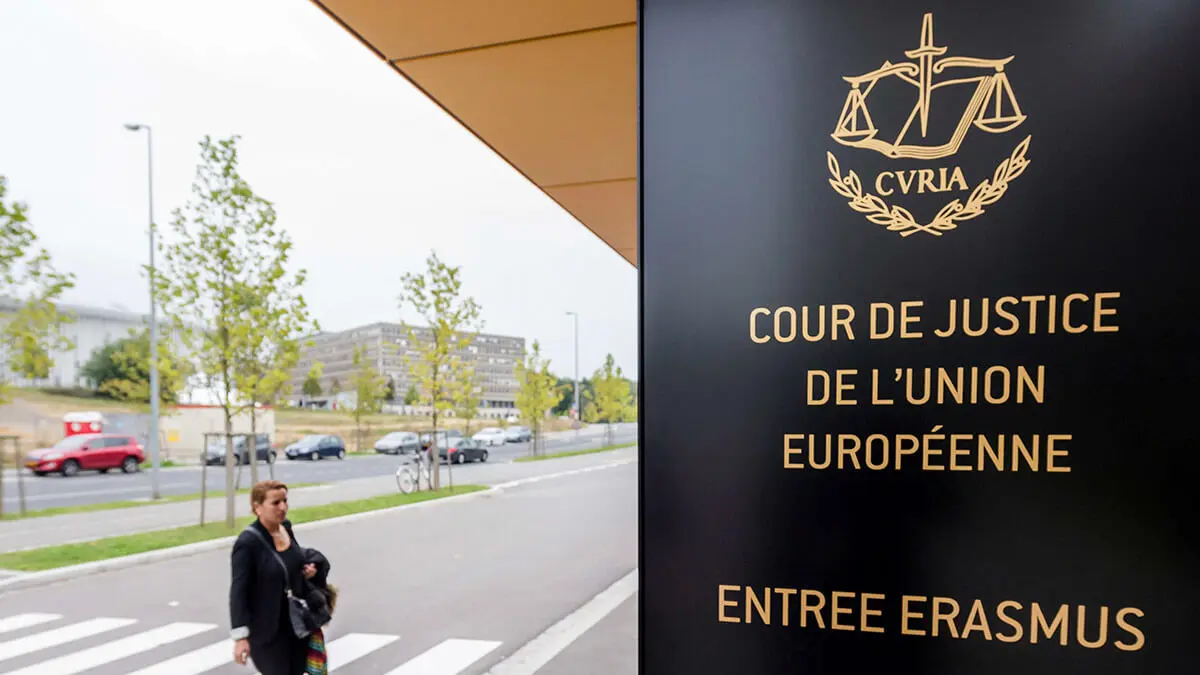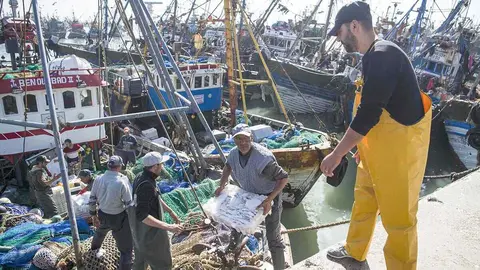Morocco, Europe's partner

Legal documents in the international arena have their relevance in the field of law enforcement, and it is the rulers and legislators who must change these documents and recognise the evidence of a consolidated situation such as Morocco's territorial integrity, with 80% of the Sahrawi population living in the southern provinces of Western Sahara, accepting the proposal presented in 2007 at the United Nations by Mohammed VI to resolve the dispute that has lasted more than 45 years with broad autonomy for the Sahara under Moroccan sovereignty.
The United Nations has still not resolved this anomalous situation, and there are those who are taking advantage of it by trying to exploit a representation that has not corresponded for many years. Originally, the Polisario Front caused the death of some 300 Spaniards and, although there are those who want to turn the page, it cannot be forgotten at a time when the European Court of Justice is basing its decision on the fact that the trade agreements between Morocco and the European Union include products grown in the Sahara and fishing in Saharan waters without the consent of the Sahrawi people.
Immediate question: who are the Saharawi people? The 80% who live in Western Sahara and accept the vast majority of Morocco's sovereignty with an autonomy that has already been supported by 100 relevant countries around the world or the 20% who live in subhuman conditions in the Tindouf camps in Algeria under the repression of the Polisario Front. The United Nations should urgently review who represents whom and with what legitimacy because elections are not held in Tindouf but are in Western Sahara, the last ones in September 2021.
In the European Union, the most important countries such as France, Germany, the United Kingdom, Spain, the Netherlands and Denmark have publicly shown their support for the Moroccan proposal and back the efforts of Rabat's diplomacy on the occasion of the United Nations General Assembly to reconvene the negotiating table and resolve a problem that now, with the instability in the Sahel caused by terrorist groups and the movements of Russia, Iran and their allied groups, requires a solution that provides security and stability to the region. An exit to the Atlantic Ocean for Algeria and Russia is unfeasible from any point of view of the United States and the European Union, and even less so now with the invasion of Ukraine and the threats in the Sahel.
Spanish companies harmed
The decision of the European Court of Justice to annul the trade agreement between Morocco and the EU on fisheries and agriculture is damaging to many Spanish companies.
Not only the fishing vessels that have not been fishing in Moroccan waters since 17 July 2023, but also numerous Spanish agricultural companies working in Morocco. Of course, the decisions of the courts are respected, especially when everything indicated the direction of the decision on this trade agreement, and then solutions are sought to avoid as far as possible the negative consequences not only for Moroccan interests, but also for European and, above all, for Spanish interests.
According to ICEX data, 360 Spanish companies are currently working in the primary sector in Morocco. When people talk about unfair competition from Moroccans, they forget that a good number of agri-food producers in Morocco are Spanish. Some prominent names of subsidiaries of large companies are Agrícola Perichan, Agroatlas, Borges, Iberfruta, Abengoa, Planasa, Juver Alimentación, Acesur, Garavilla, Agromillora, Semillas Fitó, Florimond, Nutricontrol, Ebro Foods, Aliminter S.A., Internaco, Frigodar, Primor Fruit, Fulgencio Spa, among others. Most Spanish agri-food firms are concentrated in the Gharb area between Tangiers and Rabat, in the Sus Valley, and in the Moroccan Ejido in Agadir.
Perhaps it is necessary to analyse the reasons that encourage these companies to seek a better future outside Spain and then make more or less dubious accusations. In addition to the bureaucratic procedures that Brussels intends to impose, which provoked a strong protest from many European farmers, in the case of Spain, the lack of generational replacement, the scarcity of water and land, competition with photovoltaic companies and investment funds, wage costs and social contributions, the good climate and fertile and cheaper land, the regulatory framework and access to other markets, in short, more and better competitiveness, are added to the list. Other countries chosen by Spanish companies are Tunisia, Egypt and Turkey. In the fishing sector, 92 of the 138 licences correspond to Andalusian, Galician and Canarian vessels.
In legal terms, the United Nations does not consider the Sahara and the waters off its coasts to be Moroccan territory, but has not reconvened the Geneva negotiating table due to the refusal to participate by Algeria and the Polisario Front, which claims to represent the Saharawi people without any legitimacy whatsoever. The ruling is based on the lack of consultation with the Saharawi people. The question is who can represent the Saharawi people. 80% of the Saharawi people live in Western Sahara according to Morocco's management.
For example, in September 2021, local, regional and national elections were held with more than 5,000 international observers certifying the cleanliness and guarantees of elections where Saharawis were elected by Saharawis in Laayoune, Dakhla, Guelmin, the southern provinces considered by Morocco.
In recent months, over 100 countries have publicly endorsed the proposal put forward by King Mohammed VI at the United Nations in 2007 for broad autonomy for the Sahara under Moroccan sovereignty.
This is an evident reality on the ground where political and social movements such as Movement Saharawi for Peace are increasing their support for the Sahrawi population every day and accept the Moroccan proposal. They are taking a step forward by stating that what needs to be done now is to put an end to the violence that the Polisario Front has been trying to exercise since 2020 with the support of Algeria and Iran through Hezbollah, and to sit down to negotiate the content with guarantees of an autonomy that provides the Saharawis with the same representation they have now, housing, work, health, education, security and family reunification with the Saharawis living in the Tindouf camps.
Complaints about the violation of human rights and the repression suffered by many Saharawis under the control of the Polisario Front proliferate in the United Nations, which has still not received the reports requested through the various resolutions renewing the UN troop mission on the ground, MINURSO. Among the information requested is the census in the camps to determine the real number of Saharawis living there.
These data are not provided because the number of Saharawis still living in the camps is less than 50%, the rest are sub-Saharan immigrants and, therefore, the Polisario would see a significant reduction in international financial aid and food fund shipments, which are then resold on the markets of neighbouring countries such as Mauritania and Senegal.
The Association of Victims of Terrorism of the Canary Islands is still pursuing claims for the murders of more than 300 Spaniards, soldiers and civilians perpetrated by the Polisario Front in the 70s and 80s of the last century, which some sectors of the Spanish left and extreme left prefer to forget, as is the case with Bildu.


